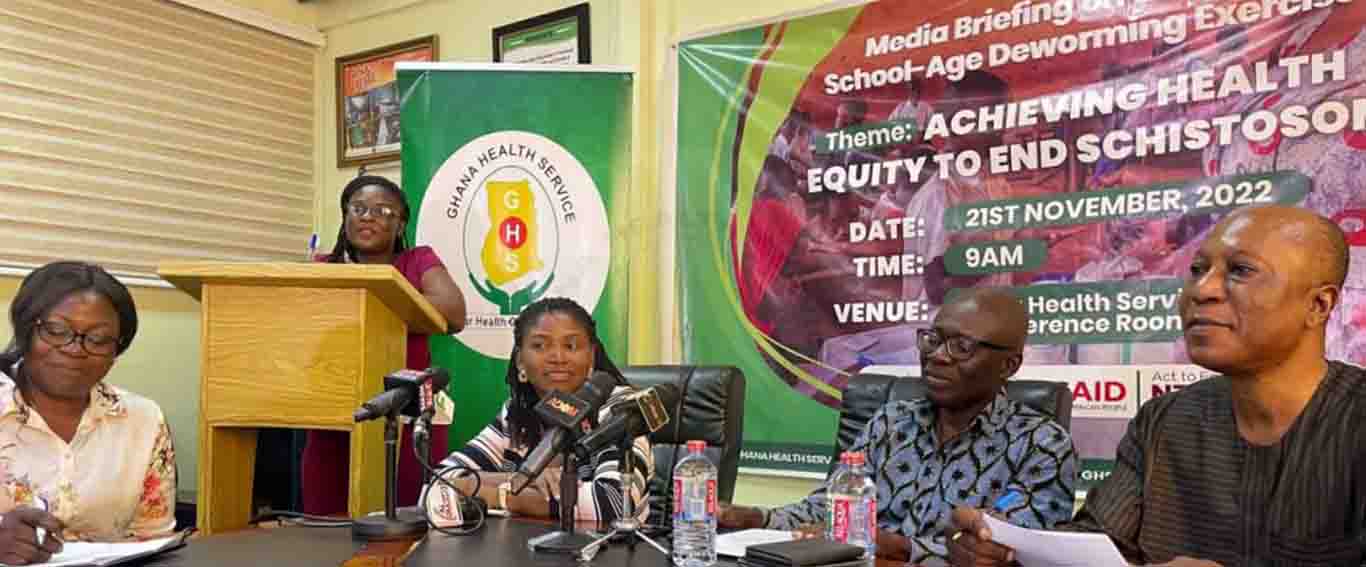Over two million school-age children between five and 14 years old have been targeted for a deworming exercise scheduled from Monday, October 28, to Sunday, November 3, 2024.
Up to 2.6 million of the targeted population are school-age children in public and private schools in 100 districts in 15 regions.
The deworming exercise dubbed the 2024 National School and Community Deworming Exercise, is a collaborative effort between the Ghana Health Service (GHS) and the Ghana Education Service (GES) to boost the health and immunity of school-age children.
It is aimed at eliminating schistosomiasis and to control soil-transmitted helminth (STH) infestations.
The Director-General of the Ghana Health Service, Dr Patrick Kuma-Aboagye, who announced the exercise at a media briefing in Accra, said the eligible children would be administered 600-milligram (mg) praziquantel and 400mg albendazole medicines during the exercise.
Those medicines, he explained, were donated to the GHS through the World Health Organisation (WHO), and would be administered under the strict supervision of specially trained school teachers and health workers.
Dr. Kuma-Aboagye said it was important for all children to eat before taking the medicines, explaining that it would help in the effective absorption of the medication.
Schistosomiasis is a disease caused by parasitic worms that live in freshwater. The infestation is more common in children in poverty-stricken areas due to poor sanitation and hygiene. Environmental exposure to schistosoma-contaminated water is the primary mode of transmission in endemic areas.
Signs and symptoms of schistosomiasis include abdominal pain, diarrhoea, blood in urine and stool, liver damage, anaemia, malnutrition and decreased productivity.
For soil-transmitted helminths, Dr. Kuma-Aboagye explained that they were most prevalent in areas with poor sanitation, inadequate hygiene practices and low socio-economic conditions.
He mentioned its symptoms to include abdominal pain, diarrhoea, anaemia, malnutrition and impaired physical and reduced cognitive development.
Dr. Kuma-Aboagye said it was important to eliminate schistosomiasis and control soil-transmitted helminth in Ghana to improve the overall health and well-being of the population.








